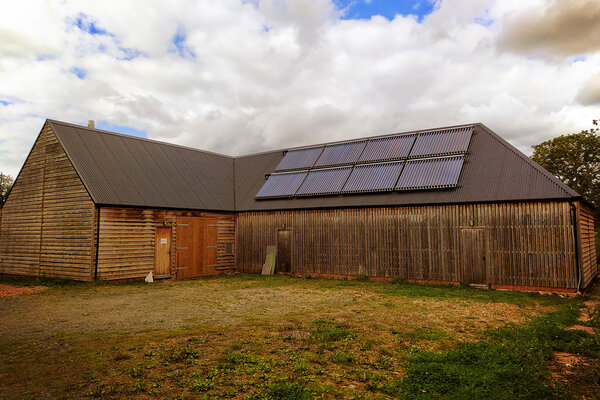Contact us 01531 584000
Opening Hours: Mon - Thu 9 - 4:30 Fri 9 - 1 Closed 20 December - 4 JanuaryFor Emergency Help over Christmas please use the Contact form
TN 23. September 2021
Hellens Manor, in Herefordshire, had some unique heating challenges, our HDG M240 wood chip boiler solution met and exceeded them.
Hellens Manor, Hellens House or simply Hellens is one of the oldest dwellings in England, and a living monument to much of England’s history. It remains a living home and contains a wealth of period furnishings, artifacts, paintings and decorations.
It is primarily composed of Tudor, Jacobean and Georgian architecture, but the foundations date from the 12th century with traces of even deeper history. As is often the case with such historic buildings, the lack of insulation, draughty windows and doors (which are all listed) and damp foundations all lead to a high heat demand that is hard to keep economic and efficient.
The old heating system comprised of a log boiler and oil boilers. The log boiler was undersized for the heat required, and as it had to be manually loaded with fuel, it was almost a full-time job keeping up with the heat demand. It also suffered from a badly configured district pipe network, which consisted of un-insulated pipes running in water logged trenches, with some buildings receiving all of the little heat generated and others none at all. There was also poor control of the produced heat resulting in heavy electricity use of more than £18,000/yr.
Heating and supplying domestic hot water to such an historic building and its associated barns and function rooms requires a well thought out and planned district biomass heating system. The first thing to do is establish what the total heat demand is, by working the size and heat loss of each building, the total scale of the system can be calculated.
The design needs to adequately heat the following buildings;
Total 210 kW
With this information an automatically fed 240kW HDG M240 biomass boiler was specified for the job. This boiler can run on compressed pellets or wood chips, and the latter, wood chips, were the obvious choice as they could be sourced, free of charge, by properly managing the Hellens estate’s extensive woodland providing free fuel. To add to the free energy party, solar thermal panels were added to the plan, with both of these heat sources heating an 8000 litre accumulator in the boiler room. The old oil boilers, one the main boiler room and the other in the main house are to be kept as backup boilers for when the Biomass boiler needs servicing.
The boiler room design.
The buildings being heated.
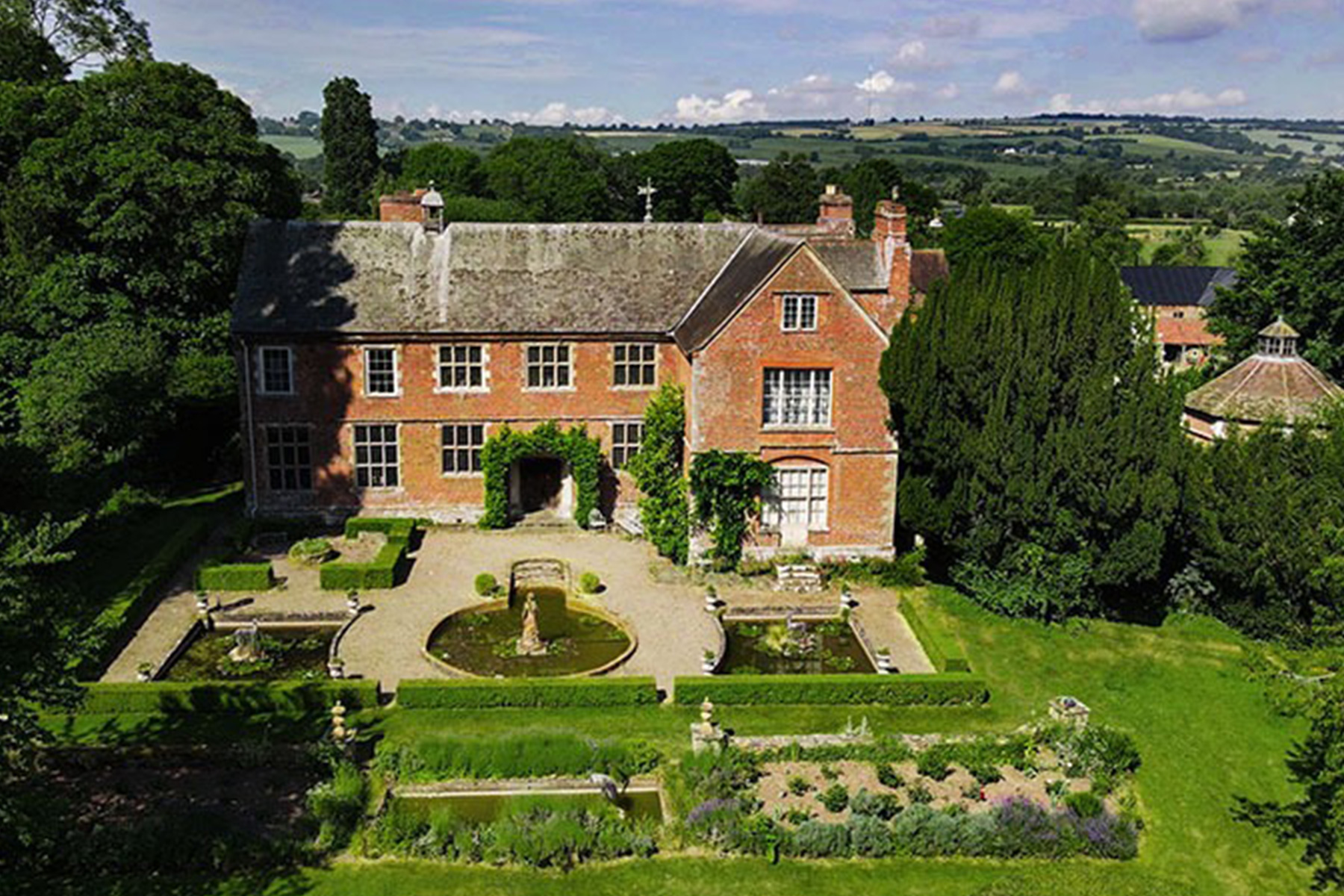
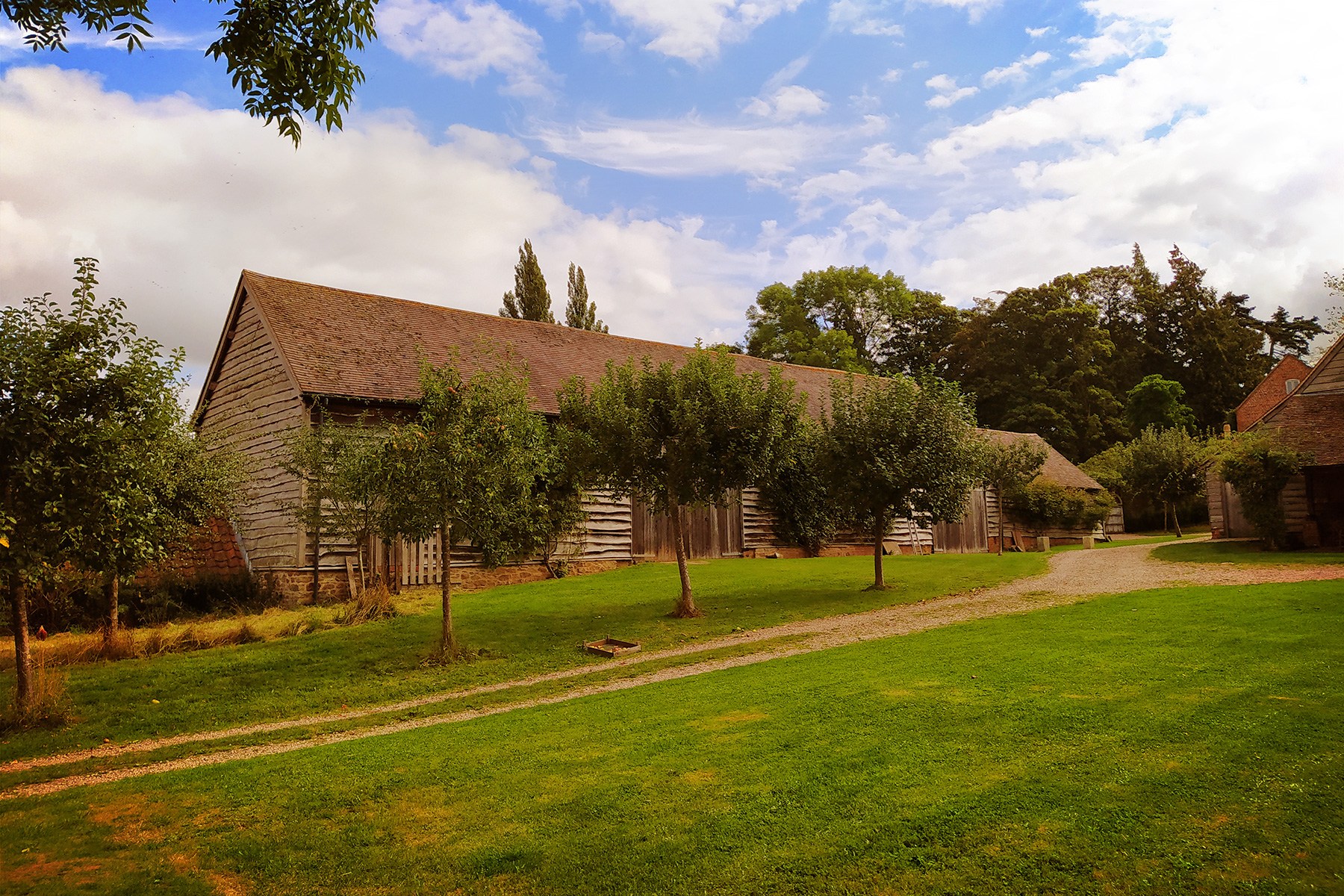
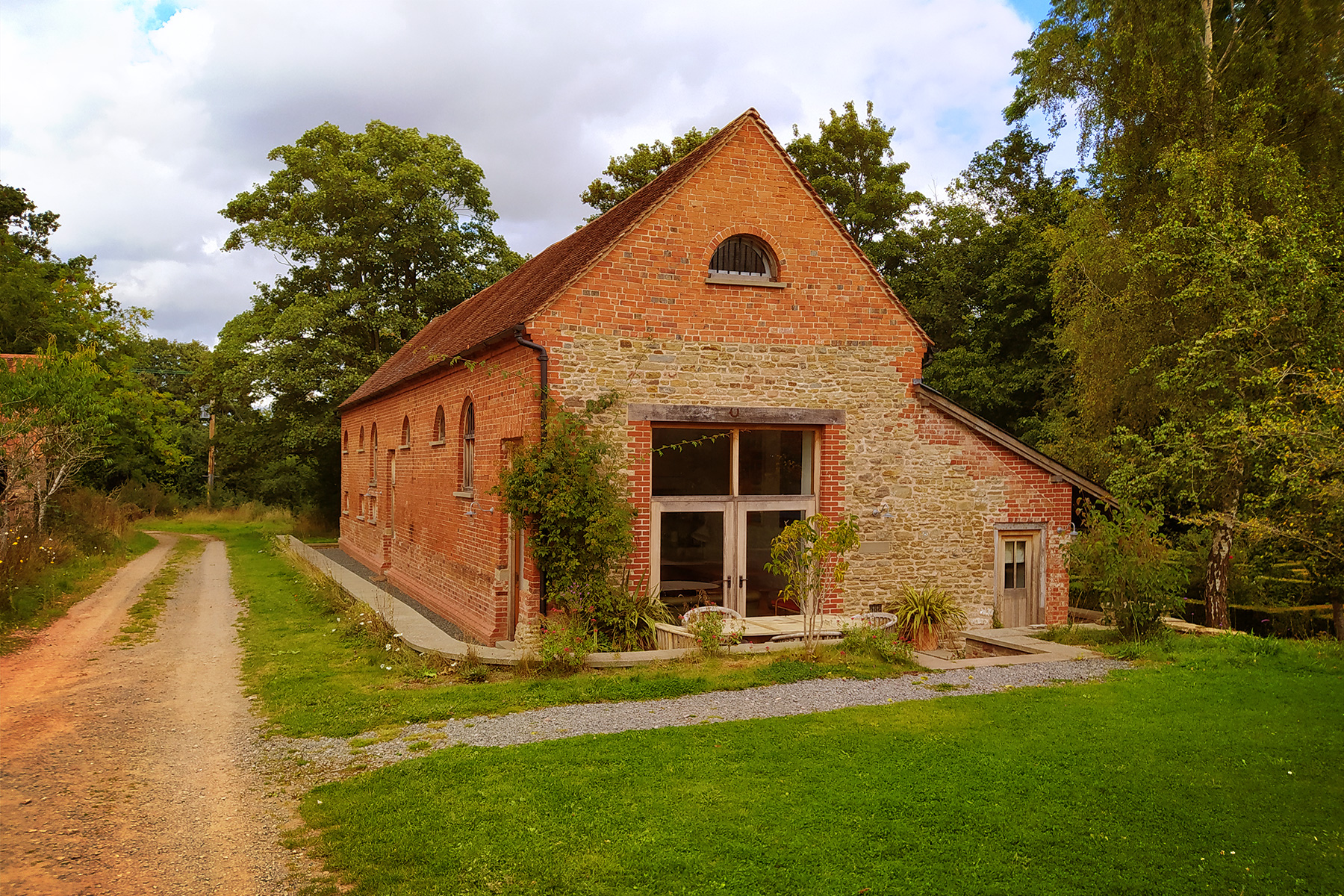
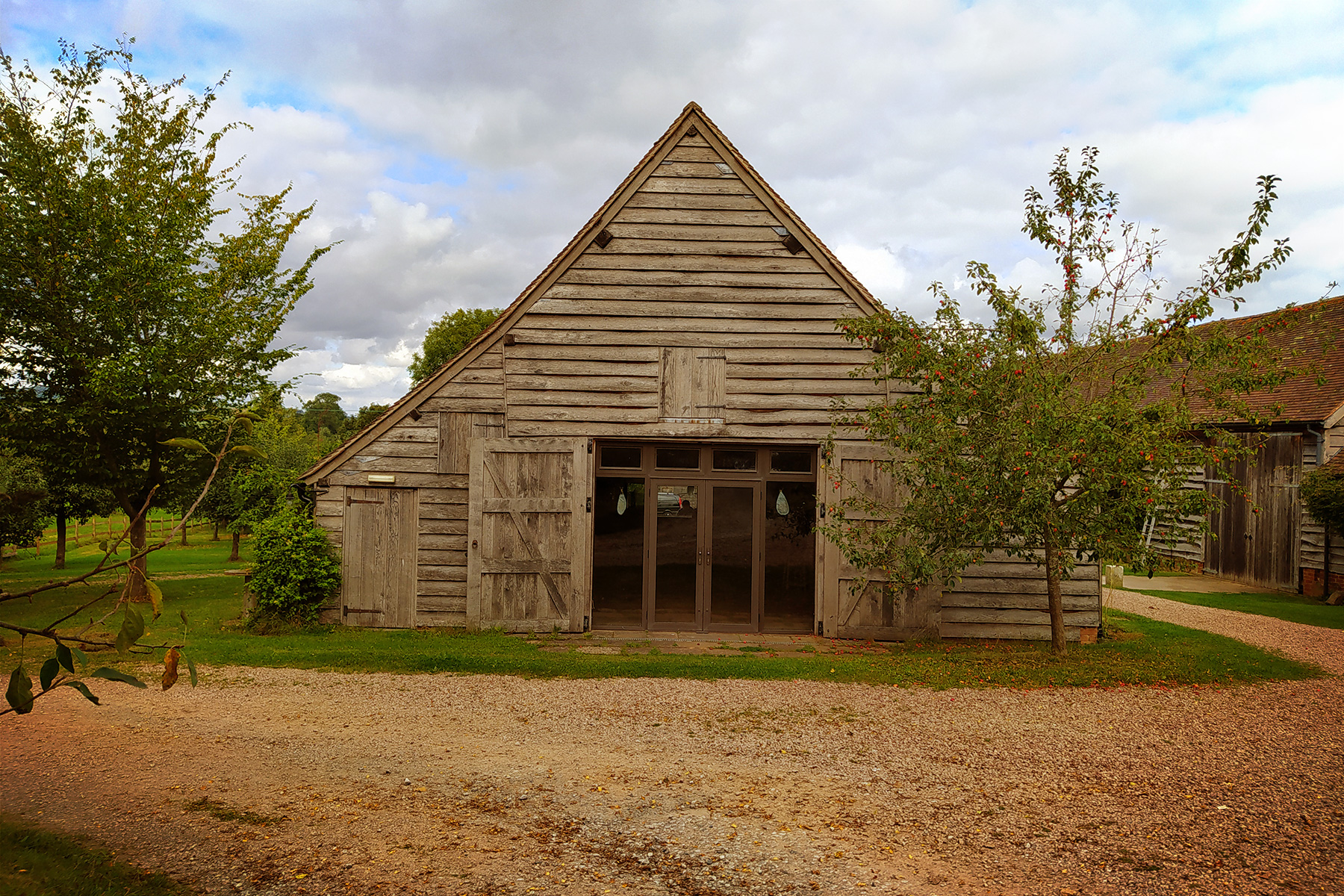
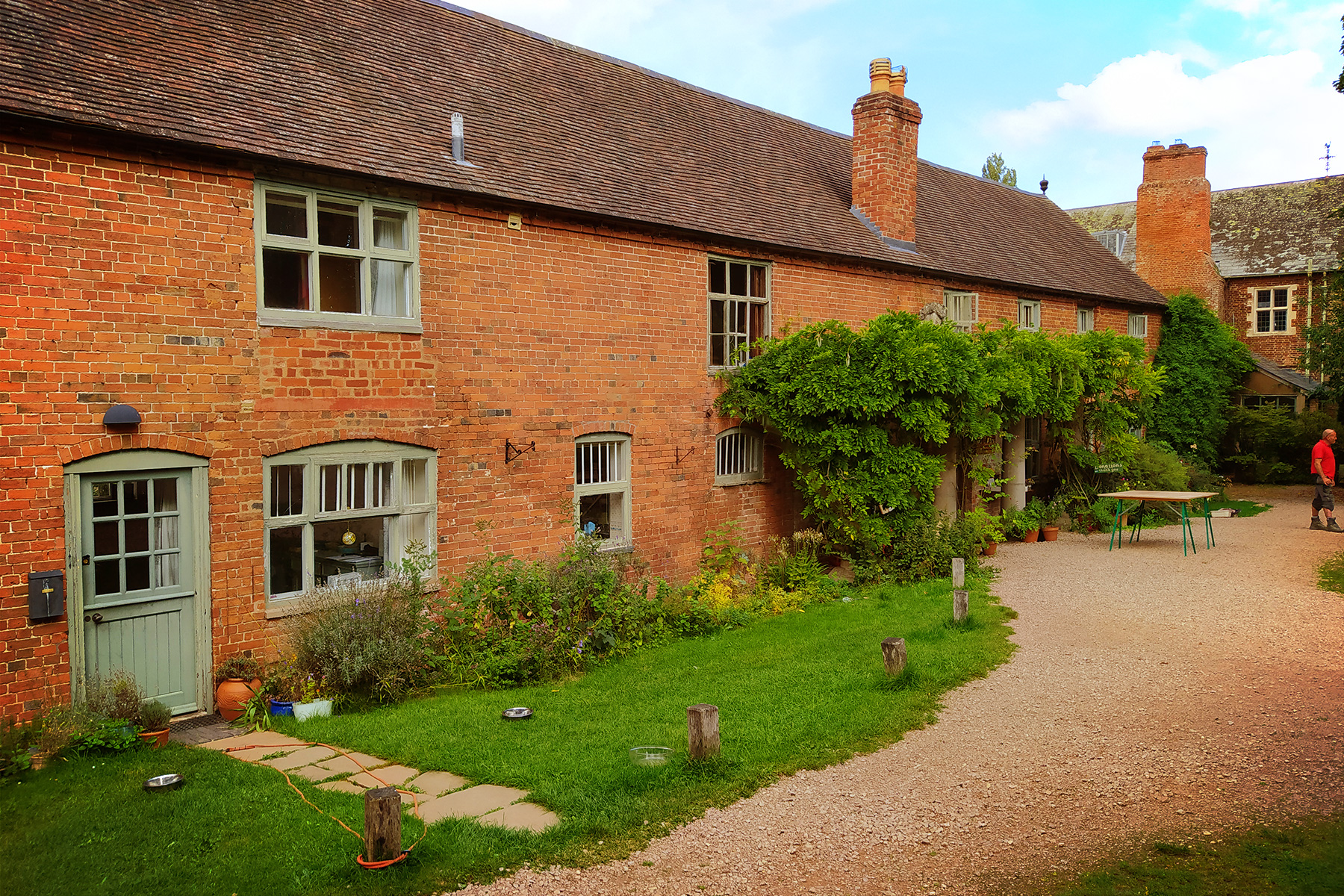
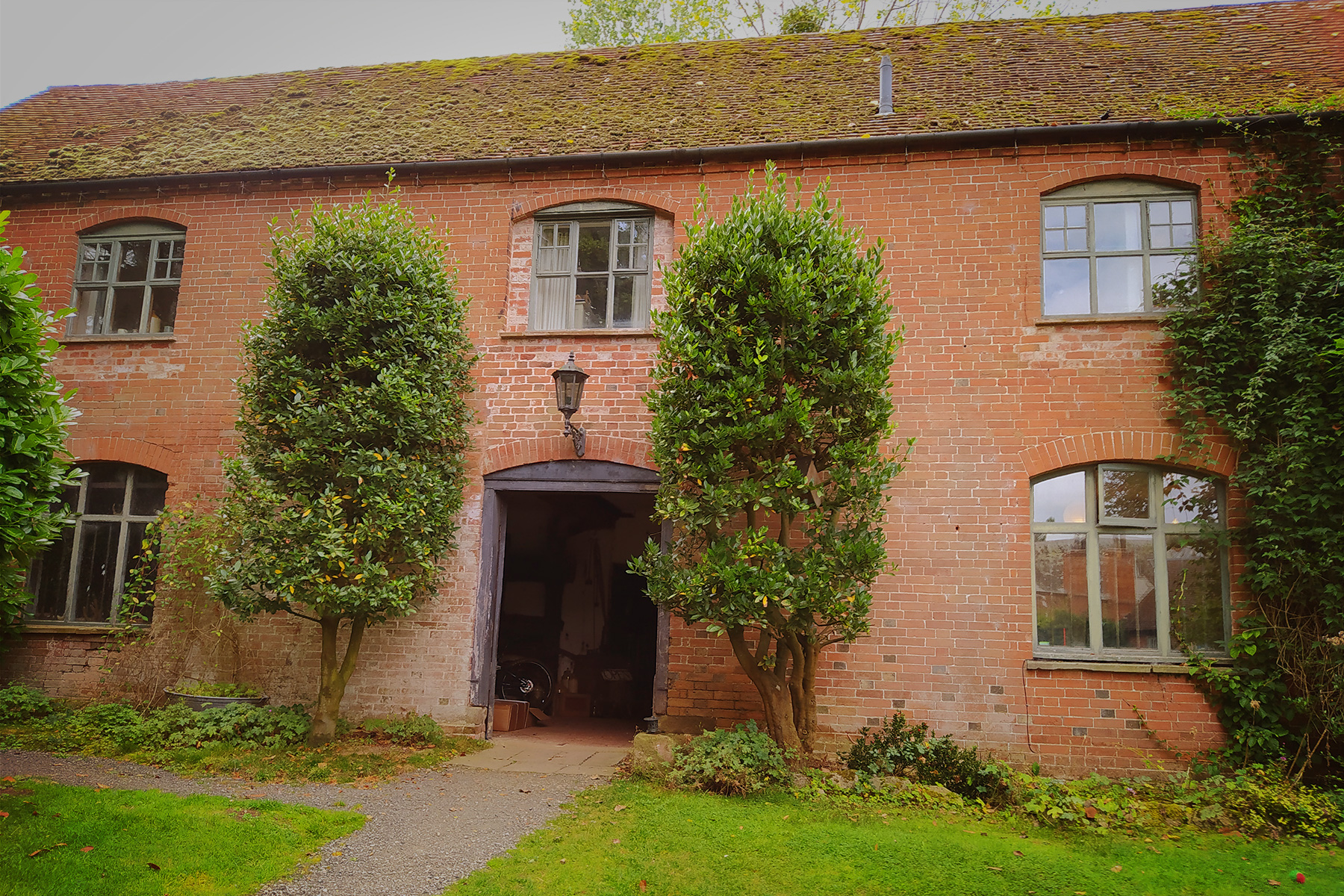
Balancing the supply of heat to these remote locations is essential and achieved with the use of automatic valves, which balance the system.
Each location is fitted with an HDG touch screen interface which operates independently to the other locations. This means in case of an issue in one of the heat circuits others are unaffected.
Each HDG touch screen controller monitors the local heat demand, including domestic hot water, each heating circuit, the outside temperature and takes the time of day into account. The controller calculates the current energy and temperature stored in the local accumulator. It will only reload the accumulator if the current calculated demand cannot be satisfied. If this is the case the current "set reload" temperature is transmitted to the master HDG touch interface located in the main boiler room. This controller also monitors the master accumulator which is heated by the solar thermal and HDG wood chip boiler. If there is not enough energy in the remote accumulator it will call for more heat from the master, and the remote accumulator is recharged. However, if there is not enough heat in the master accumulator to replenish the remote accumulator, the wood chip boiler is activated to reload the master accumulator with hot water and this in turn is pumped to the remote accumulator.
This advanced control strategy means heat is only produced or transferred when required resulting in large financial savings.
Adding solar thermal panels to the roof of the chip store barn was an obvious decision, as the large accumulator in the boiler room could easily store the free hot water generated by the sun and it also generates RHI payments in its own right on sunny days throughout the whole year, without needing any additional heat input from the biomass boiler.
The existing oil boiler in the boiler room and the one in the cellar of the main house will be retained as a backup solution that can be used whilst the biomass boiler is serviced.
With this holistic view of the heating and hot water production, utilising different heat sources and balanced delivery to remote storage locations, Hellens is assured an efficient and reliable supply of heat and hot water in the future.
